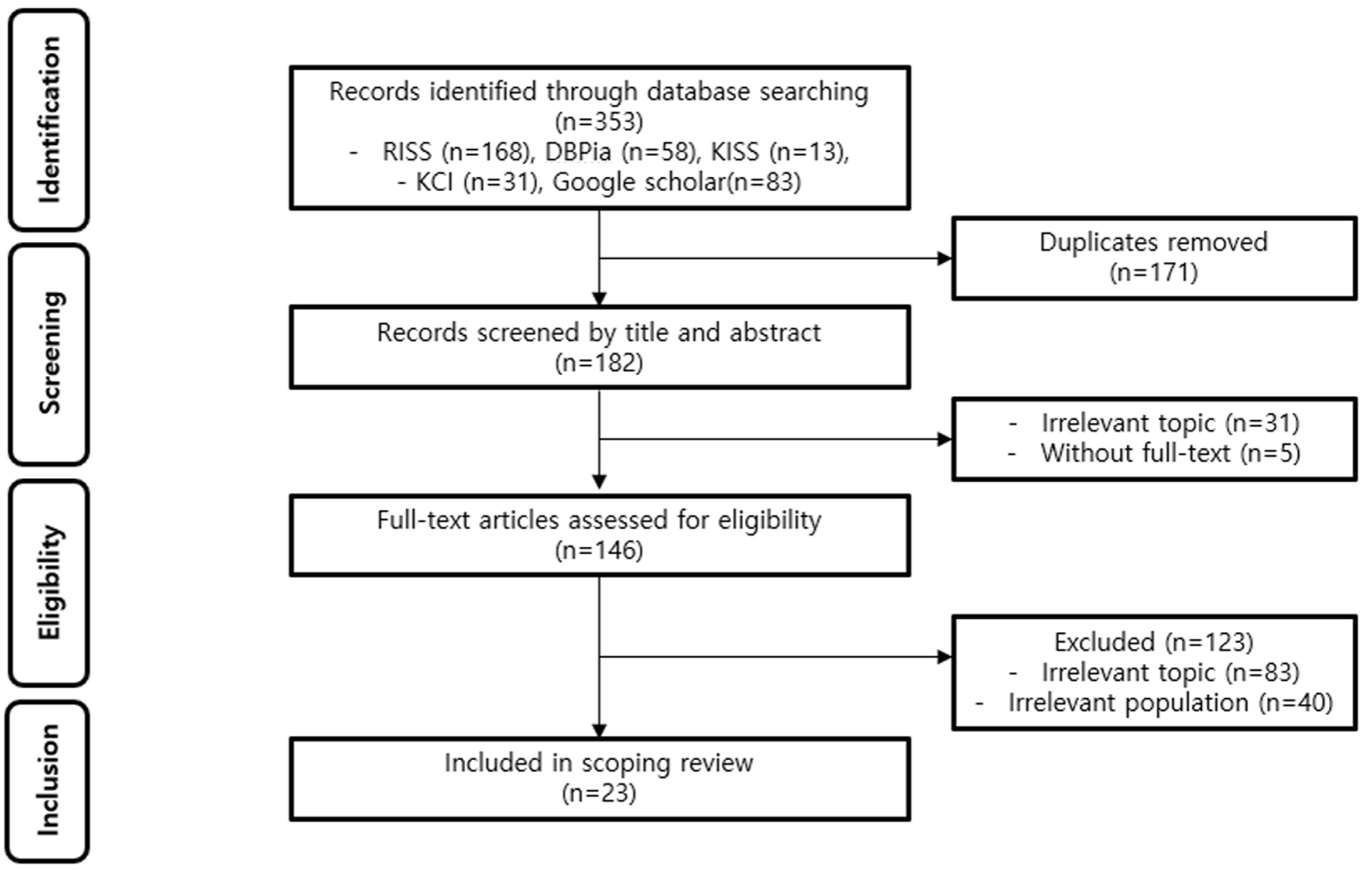Abstract
Purpose: This study aimed to analyze the general characteristics, research methods, related variables, and research outcomes of studies on gratitude disposition among nursing students in South Korea through a scoping review, and to suggest future research directions. Methods: This study followed the Joanna Briggs Institute (JBI) scoping review protocol based on Arksey and O'Malley's methodological framework. The review included studies on gratitude disposition among Korean nursing students published from 2010 to 2024. Out of the articles retrieved from five databases, 23 studies meeting the selection criteria were f inally analyzed. Results: Research on this topic has increased since 2016, with most being survey studies (87.0%). Third-year students were the most common subjects, and most studies used the K-GQ-6 tool to measure gratitude disposition. Gratitude disposition was primarily used as an independent variable (73.9%). Related variables were categorized into emotional and psychological factors, interpersonal and social factors, and professional factors. Conclusion: This study comprehensively analyzed research trends on gratitude disposition among nursing students in South Korea. Future research should consider applying qualitative research methods, developing measurement tools that reflect the characteristics of nursing students, and exploring the structural relationships between gratitude disposition and related variables. These efforts can contribute to developing effective intervention strategies to enhance gratitude disposition among nursing students.
Figures & Tables

Fig. 1.Flow chart of the selection process
